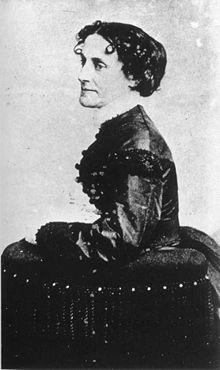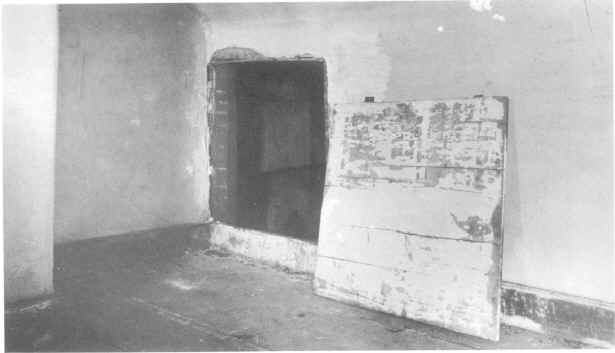Insanely Sane & Steeped in Subterfuge!
In my previous post of Pioneering Women of Civil War America (Tenth Installment) about Katharine Prescott Wormeley, I promised I’d feature another woman of Civil War times who was “Insanely Sane & Steeped in Subterfuge!” How’s that for good alliteration? Anyway, let me now present to you:
Elizabeth “Miss Lizzie” Van Lew (1818-1900)
First, let me qualify that Elizabeth Van Lew liked to be called Miss Lizzie by her friends and family. Since I feel an intimacy to her through my research, and my main character, Jana Brady/Union cavalryman Johnnie Brodie, in Sweet Glory (Book 1 of Glory: A Civil War Series) gets to call her that, why can’t I?
On to Miss Lizzie’s Subterfuge!
She was the only woman—a Southern socialite, no less—who spearheaded an extensive spy ring in the South, through her home, in Richmond, Virginia. Right under the Confederacy’s nose in their capital city! There she gathered military intelligence for General Benjamin Butler of the Union Army. By the way, Miss Lizzie loathed being called a spy. Per her own words from her voluminous journal:
“I do not know how they can call me a spy serving my own country within its recognized borders. Am I now to be branded a spy by my own country, for which I was willing to lay down my life? God knows there is no vocation more enobling, more honorable, and even the disgraceful word cannot stain my record.”
For these contemporary times, I’ll employ the word “spying” and pray Miss Lizzie doesn’t come back to haunt me!
Before she began spying for General Butler, she already had a complex network formed to help Union soldiers and Rebel deserters escape from prison through her mansion (pictured below):
And, before the Civil War, her mansion was also a safe-house for runaway slaves. Pictured below is the secret room off her attic where she hid them and, later, Yankee escapees.
Just how far-reaching were the tentacles and incredulous the feats of Miss Lizzie’s spy ring?
She had one of her highly intelligent and educated former slaves, Mary Bowser, inserted into the Confederate White House (pictured below) as a maid where President Jefferson Davis and staff hid nothing from the stereotypical slave who lacked reading and writing skills. Thus, Mary passed along military intelligence that she overheard, and her photographic mind captured more from maps and other documents sprawled across the president’s desk.

She plied the provost marshal of Richmond, General John H. Winder, with compliments, custard, and politically agreeable conversation for his permission to visit the Yankees confined in Libby and other prisons and their affiliate hospitals around the Confederate capital. Then, she brought the inmates and patients food, clothes, medicine, and especially books in which she had them underline words that recorded what they’d seen or heard of Rebel-troop positions and strengths and battle strategies on their way into prison.
She had informants in the Confederate War and Navy Departments, Libby Prison, and the office of the Richmond, Fredericksburg, and Potomac Railroad. The latter helped her in slowing down shipments of Rebel troops and supplies and in carrying her messages.
She worked with other Union spies. One such—prior to her concerted espionage with General Butler—was Pinkerton agent Timothy Webster, who was caught spying and hung by the Confederacy. This, however, did not deter Miss Lizzie; it merely heighted her caution.
She traveled herself or sent her loyal former slaves to farms, including her own on the outskirts of Richmond, to gather intelligence or aid escapees under the guise that they were fetching food.
She purposely dressed in mismatched clothing and tangled her ringlets as she walked through the streets of Richmond mumbling to herself, hoping to appear crazy but harmless while she spied on the Confederacy. It worked because. . .
. . .Miss Lizzie earned the nickname “Crazy Bet!”
Some claim Miss Lizzie let herself be known as an abolitionist and Unionist, making it too obvious for her to be a spy against the Confederacy. Others claim she maintained a pro-Confederate façade, fearing ostracism by her community or deportation or execution by the Confederacy as a traitor. Certainly, before the war, her closest friends must have known or suspected her proclivities. Thus, as the saying goes, Loose lips sink ships. However, in order for Miss Lizzie to maneuver her underground network once the war started, she probably resorted to outwardly practicing loyalty to the South—especially if she wanted to gain access to Union prisoners. One ploy in this regard, although true to her nature, she acted the part of a true Southern lady and socialite, who was expected to show compassion toward the less fortunate, by treating all wounded men—Rebel and Yankee alike.
The most incredible feat of Miss Lizzie and her underground network involved. . .



Pingback: Pioneering Women of Civil War America (Thirteenth Installment) - Lisa Potocar ~ Author
Pingback: Pioneering Women of Civil War America (Twelfth Installament) - Lisa Potocar ~ Author
Pingback: Pioneering Women of Civil War America (Eleventh Installment, Part B) - Lisa Potocar ~ Author